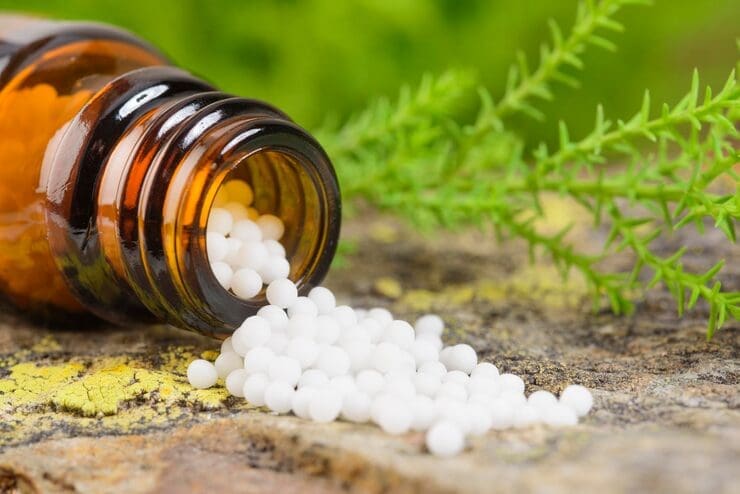
Aloe socotrina
Latin name: Aloe socotrina
Short name: Aloe
Common name: Socotrine Aloes | Bitter Aloes | Aloe Resin | Zanzibar Aloes | Curaçao Aloes
Primary miasm: Sycotic Secondary miasm(s): Psoric
Kingdom: Plants
Family: Asphodelaceae
- Symptomatology
- Remedy Information
- Differentiation & Application
Aloe socotrina is a succulent plant of the Asphodelaceae family, native to the island of Socotra and other arid regions of Africa and the Arabian Peninsula. The remedy is prepared from the dried juice (latex) obtained from the cut leaves, which contains anthraquinone glycosides, notably aloin. In crude form, it is a strong purgative. In homeopathy, Aloe is prepared from the resin, triturated and potentised to reveal a wide range of action, chiefly on the lower bowel, producing characteristic symptoms of diarrhoea, congestion of the pelvic organs, haemorrhoids, and portal congestion. It also acts on the mucous membranes, liver, and to a lesser extent the urinary and reproductive organs.
Traditionally used as a cathartic in constipation, as a bitter tonic, and in ointments for skin conditions. In herbal medicine, applied externally to burns and wounds (Aloe vera species). The Socotrine variety is mainly a purgative in small doses.
Proved by Helbig and confirmed clinically by Hering, Allen, and others. The proving demonstrates strong action on the rectum and lower bowel, with secondary liver and pelvic organ involvement. Characteristic weakness of the sphincters and urgency of stool are marked [Hering].
- Rectum and lower bowel – Diarrhoea, tenesmus, haemorrhoids [Clarke, Hering].
- Liver and portal circulation – Congestion, sluggish metabolism.
- Pelvic organs – Congestion in both sexes, especially in women during menses.
- Mucous membranes – Increased secretion, catarrhal discharges.
- Venous system – Portal engorgement and haemorrhoidal dilatations.
- Cold applications to haemorrhoids
- Passing flatus
- Cool open air (especially for head and abdominal symptoms)
- Rest, especially lying down after stool
- Heat, particularly in warm, close rooms [Kent]
- Early morning, especially on rising (urgent diarrhoea)
- Standing or sitting long (aggravates haemorrhoids)
- Eating or drinking (provokes stool)
- After beer, wine, or rich food
- During hot weather and in autumn
- Sulphur – Haemorrhoids and early morning stool, but more heat, itching, and burning in anus.
- Podophyllum peltatum – Early morning diarrhoea, but more gushing and painless.
- Muriatic acid – Haemorrhoids with extreme weakness; more prostration.
- Nux vomica – Ineffectual urging with small stools; more nervous irritability.
- Complementary: Sulphur, Nux vomica.
- Follows well: Sulphur in chronic haemorrhoidal states.
- Antidotes: Camphora for medicinal overdose.
Aloe is the rectal and portal congestion remedy par excellence — urgency of stool with insecurity, large hot haemorrhoids, abdominal fullness and heat, and aggravation in warm weather. The mental picture is irritable and dissatisfied, reflecting the physical discomfort.
Useful in summer diarrhoea of the aged or phlegmatic, in haemorrhoids of sedentary people, and in portal congestion from rich diet. Low potencies (3x–6x) for acute bowel conditions; higher potencies for chronic constitutional use.
Mind
- Irritability with abdominal complaints
- Dissatisfaction with self and others
Head
- Headache, congestive, worse warm room
- Heaviness in forehead with abdominal symptoms
Abdomen
- Fullness and heat in hypogastrium
- Distension with rumbling after eating
Rectum
- Diarrhoea, early morning, driving out of bed
- Haemorrhoids, large, hot, protruding
- Insecurity of rectum; must hurry to toilet
Female
- Menses, early, dark, clotted, with diarrhoea
Generalities
- Worse heat, warm room
- Worse morning; better open air
- Hering, C., Guiding Symptoms of Our Materia Medica – Core rectal symptoms; modalities; mental picture.
- Clarke, J. H., A Dictionary of Practical Materia Medica – Liver and portal congestion; menses with diarrhoea.
- Allen, T. F., Encyclopaedia of Pure Materia Medica – Proving details; urgency and insecurity of stool; haemorrhoidal symptoms.
- Kent, J. T., Lectures on Homeopathic Materia Medica – Modalities; portal system action.
- Boericke, W., Pocket Manual of Homeopathic Materia Medica – Keynotes and general uses in haemorrhoids and diarrhoea.
